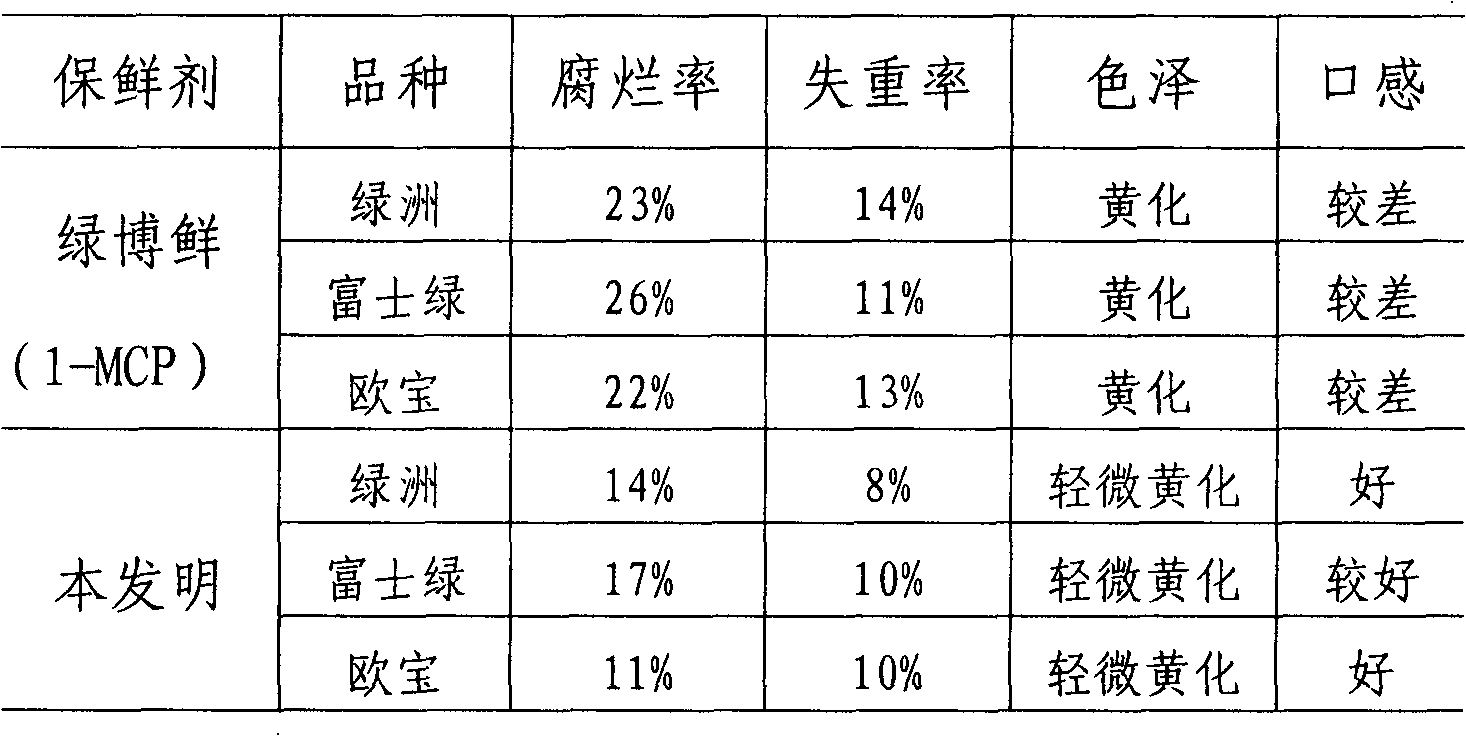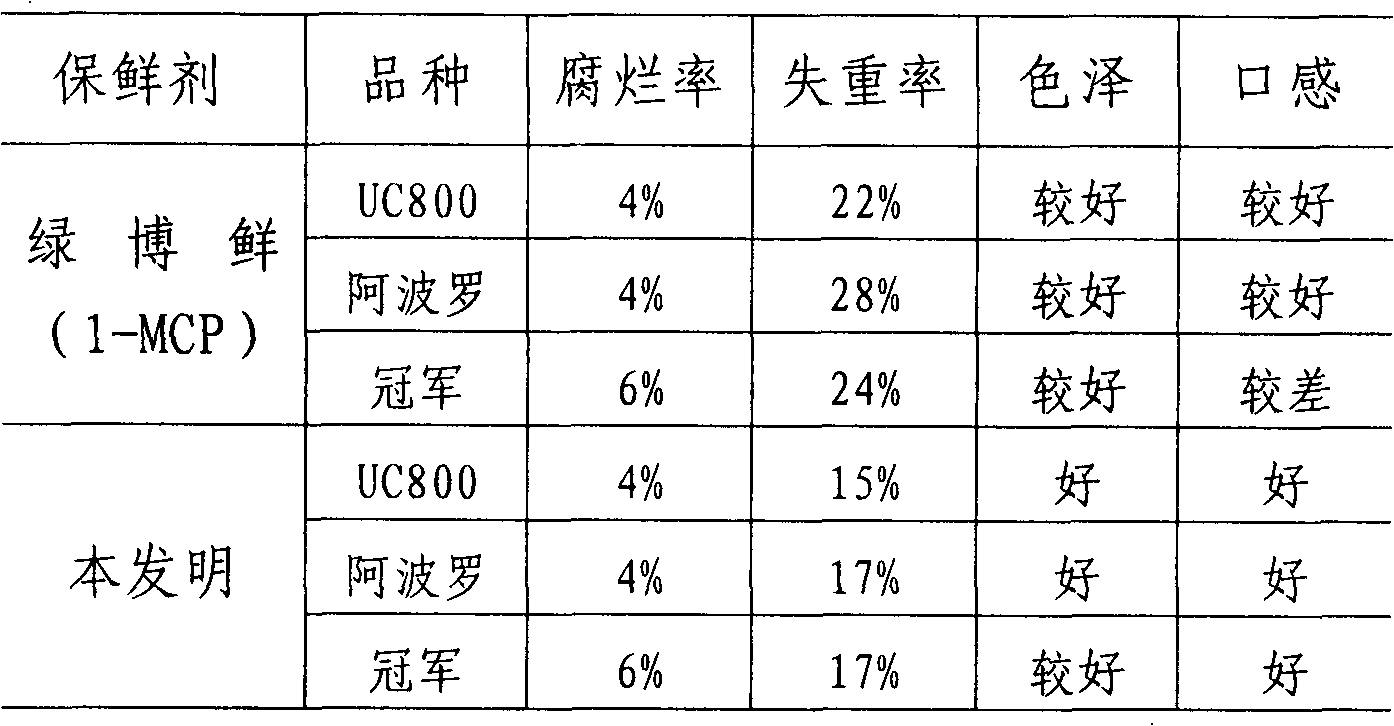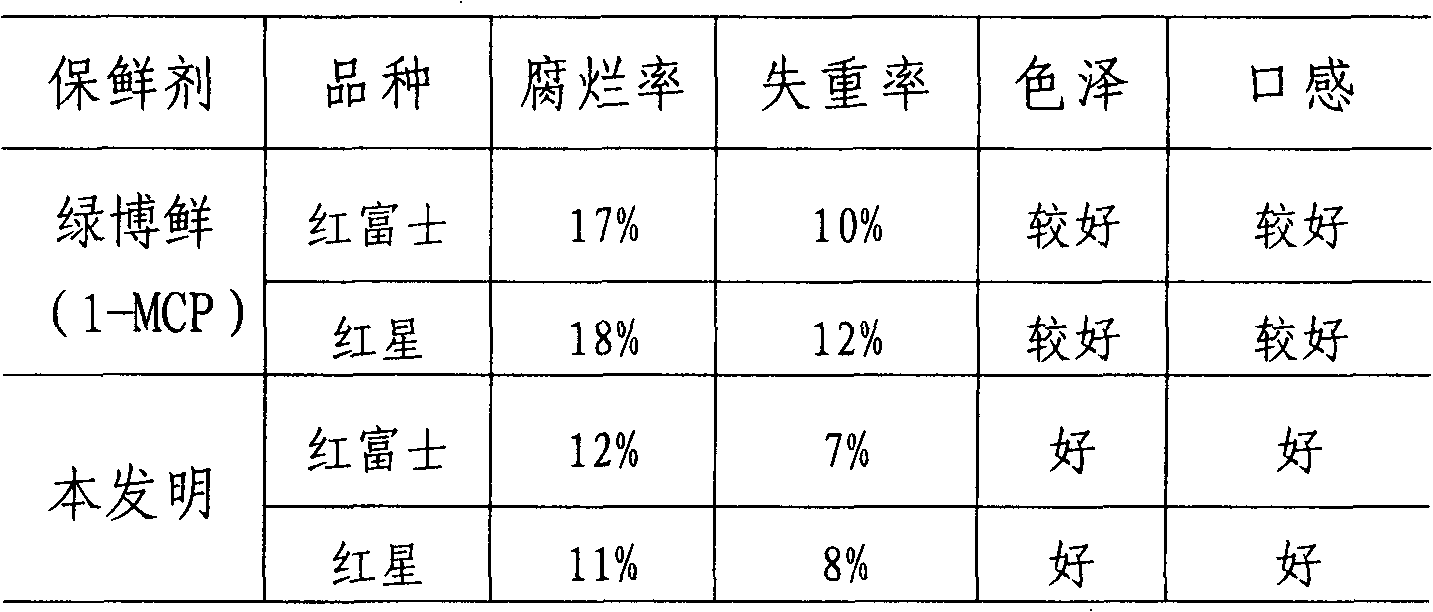Slow-release preservative for fruits and vegetables and preparation method thereof
A preservative, fruit and vegetable technology, applied in fruit and vegetable preservation, food preservation, food science and other directions, can solve the problem of anti-rot, anti-water loss and weak inhibition of pathogenic bacteria, hidden dangers in food safety, drug resistance of pathogens, etc. problems, to achieve the effect of inhibiting the rot and yellowing of fruits and vegetables, the effect of storage and preservation is remarkable, and the effect of reducing water loss
- Summary
- Abstract
- Description
- Claims
- Application Information
AI Technical Summary
Problems solved by technology
Method used
Image
Examples
example 1
[0017] Example 1, mix 20% of silica gel powder, 50% of diatomaceous earth and 30% of polydivinylbenzene porous adsorbent by mass ratio, add dehydrated alcohol and fully mix to saturation, bag by the amount of 5g / bag (by 5cm × 5cm sustained-release bag made of polyethylene breathable film), and then packed into a breathable paper bag for packaging.
[0018] Put the freshly picked broccoli into a polyethylene plastic preservation bag (58cm×100cm, film thickness 0.03mm), and put it into a bag of slow-release preservative for storage, and store it at room temperature (average 15-20°C) in the dark for 9 days ; Treated with Lvbo Fresh Preservative as contrast, the test results are as follows:
[0019]
[0020] From the test results, this example has a remarkable fresh-keeping effect on broccoli, and the rot rate, weight loss rate, color and taste are all significantly better than those of the control group.
example 2
[0021] Example 2, mix 15% of silica gel powder, 65% of diatomaceous earth and 20% of polydivinylbenzene porous adsorbent by mass ratio, add 1% polyvinyl alcohol by mass ratio, and press it into 5g / The cake shape of each is immersed in a 75% ethanol solution, then packed into a 5cm × 5cm slow-release bag made of EVA breathable film, and then wrapped in a breathable wrapping paper bag outside the slow-release bag.
[0022] Take freshly picked asparagus and put them into polyethylene plastic fresh-keeping bags (58cm×100cm, film thickness 0.03mm), put them in 2 bags of slow-release preservatives for storage, and store them in a cold storage at 2-5°C in the dark for 5 weeks; The antistaling agent was treated as a control, and the test results were as follows:
[0023]
[0024] From the test results, the effect of this example on preventing asparagus from rotting is equivalent to that of the control, but the effect of reducing weight loss is significantly higher than that of the...
example 3
[0025] Example 3, mix silica gel powder 35%, diatomaceous earth 30% and polydivinylbenzene porous adsorbent 35% by mass ratio, add dehydrated alcohol and fully mix to saturation, bag by the amount of 15g / bag (by 7cm×7cm slow-release bag made of oxidized polyethylene gas-permeable film), and then packaged in a gas-permeable paper bag.
[0026] Take freshly picked apples and put them into fruit packaging cartons (50cm×42cm×33cm), put 1 bag of slow-release preservative at each diagonal end of the bottom of the carton, and store them at room temperature (average 15-20°C) and avoid light 10 weeks; taking Lvbo Fresh Preservative as a control, the test results are as follows:
[0027]
[0028] From the test results, this example has a remarkable effect on keeping apples fresh, and the rot rate, weight loss rate, color and taste are all better than those of the control group.
PUM
 Login to View More
Login to View More Abstract
Description
Claims
Application Information
 Login to View More
Login to View More - R&D
- Intellectual Property
- Life Sciences
- Materials
- Tech Scout
- Unparalleled Data Quality
- Higher Quality Content
- 60% Fewer Hallucinations
Browse by: Latest US Patents, China's latest patents, Technical Efficacy Thesaurus, Application Domain, Technology Topic, Popular Technical Reports.
© 2025 PatSnap. All rights reserved.Legal|Privacy policy|Modern Slavery Act Transparency Statement|Sitemap|About US| Contact US: help@patsnap.com



